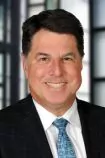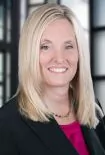Los Angeles, Calif. (June 2, 2021) - Los Angeles Partner and national Co-Chair of Lewis Brisbois' Legal Malpractice Defense Practice Kenneth C. Feldman, along with San Diego Partner Corinne Bertsche, recently published an article for the Daily Journal titled, "New Decisions on Expert Testimony in Legal Malpractice Cases," which discusses two recent California Court of Appeal decisions regarding applying expert testimony to establish causation in legal malpractice matters.
Mr. Feldman and Ms. Bertsche open the article by pointing out the "paucity of published cases addressing causation in legal malpractice actions" during recent years. They then describe and analyze two recent opinions issued by California's Fourth District Court of Appeal and Second District Court of Appeal that specifically address this issue - O'Shea v. Lindenberg, 2021 Cal.App. Lexis 405 (April 23, 2021), and Michaels v. Greenberg Traurig, LLP, 62 Cal.App 5th 512 (2021), respectively.
O'Shea
The authors explain that in the O'Shea matter, the appellate court upheld the lower court's grant of a directed verdict in favor of the defendant attorneys, reasoning that the plaintiff in the legal malpractice case failed to introduce expert testimony establishing to a "reasonable degree of legal certainty" that a better result would have been obtained in the underlying child support proceeding if the defendant attorney had retained a forensic accountant expert. The authors noted that the court stated "[w]here the complexity of the causation issue is beyond common experience, expert testimony is required to establish causation." The authors point out that in its analysis, the appellate court relied upon the "but for" standard on causation that was set forth in Viner v. Sweet, 30 Cal. 4th 1232 (2003) and used for more than 120 years.
Michaels
The authors describe that in the Michaels matter, the appellate court reversed the trial court's order granting summary adjudication as to the legal malpractice cause of action in favor of the defendant attorneys. In doing so, it concluded that the lower court abused its discretion in excluding expert testimony concerning causation and damages. The authors further note that a petition for review in this case is pending before the California Supreme Court. As such, the highest court in California may ultimately "resolve the proper standard for admissibility of an expert's opinion offered in opposition to a motion for summary judgment/adjudication."
Authors' Analysis
In analyzing the O'Shea and Michaels opinions together, the authors describe, "The concept of courts acting as a gatekeeper to prevent speculative malpractice claims from advancing applies at both the summary adjudication/judgment stage, as well as after a trial. The authors suggest "the O'Shea court understood this whereas the Michaels court missed the mark with its analysis." Thus, the authors ultimately conclude that the California Supreme Court should grant review of the Michaels matter and reverse the Court of Appeal's decision.
Mr. Feldman, who serves as co-chair of Lewis Brisbois' Legal Malpractice Defense Practice, is a certified specialist in legal malpractice law by the California State Bar, and was the chair of the California State Bar Legal Malpractice Law Advisory Commission from 2018-2019. He is also the author of the California Legal Malpractice & Malicious Prosecution Liability Handbook, the 8th edition of which was recently published in January 2021.
Ms. Bertsche is a member of Lewis Brisbois' Professional Liability Practice. She has over 23 years of experience as a civil litigator, focuses her primary practice in the areas of professional liability and legal malpractice defense, and is a Certified Specialist in Legal Malpractice with the California Bar Legal Specialization Board. Ms. Bertsche also handles appeals and writs, and has experience handling business and commercial litigation.
You may access the full Daily Journal article here (subscription required).
The content of this article is intended to provide a general guide to the subject matter. Specialist advice should be sought about your specific circumstances.


